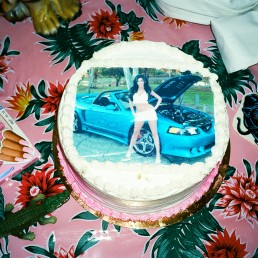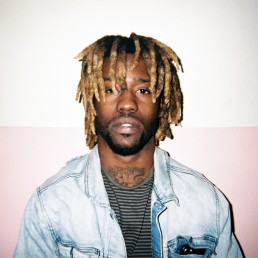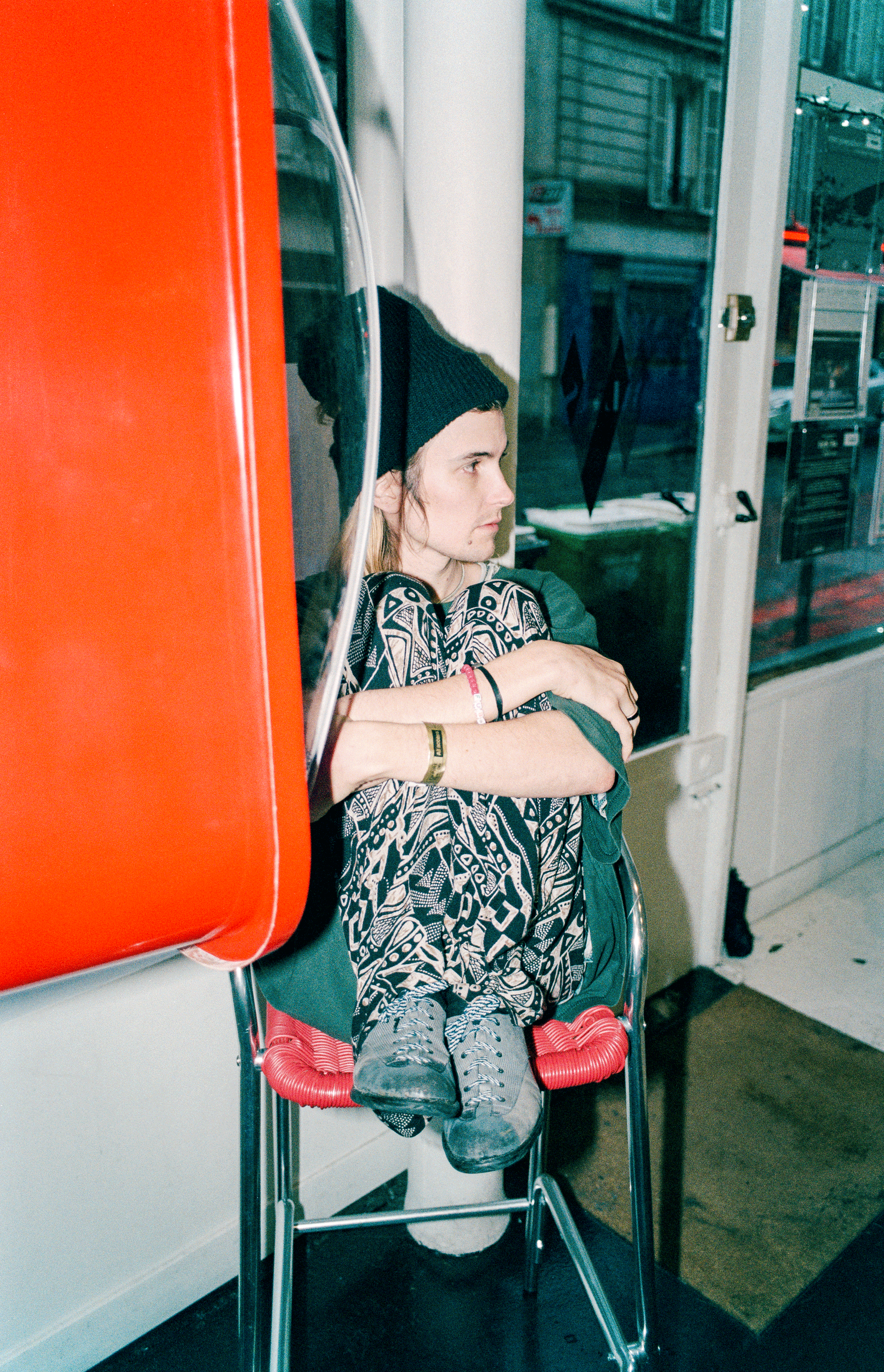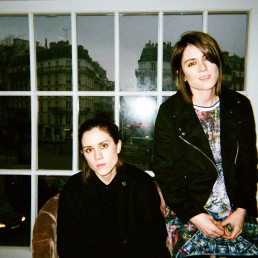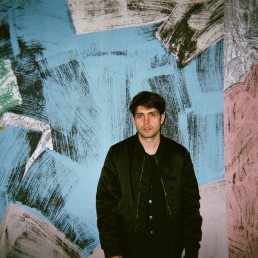Zola Jesus (Nika Roza Danilova) creates music as pure catharsis, dark, heavy with exploratory sounds emerging. With her new album Okovi, she has developed a profound meditation on loss and reconciliation, which finds its place next to major works of this kind. The album treats tragedy with wisdom and clarity. Her songs are dark in depth while still bright, creating a deeply personal snapshot of loss, reconciliation and that connect us to the ruthless laws of nature.

Okovi means “chains” in various Slavic languages.
When the album was done, I was thinking a lot about this word “okovi”. I knew in Russian “okovi” meant shackles, but when I looked further, I realized it meant shackles in several other Slavic languages. It tied together a lot of my diasporic Slavic roots; Russian, Ukraine, Slovenia. While at the same time, it was a universal connector between so many types of people. What all humans have in common is at some point we have been chained or shackled in life, metaphorically or psychically. It fit the songs on the album in many ways.
You are originally from Wisconsin, but have you explored your Slavic roots?
I’ve been to Eastern Europe and Russia, but I haven’t been to the Ukraine. Tomorrow I’m going to Macedonia as part of this tour. I didn’t understand how much Russia was a part of me until I went there, in a very profound way. It is something that I can’t explain or understand. The whole essence of Eastern Europe and Russia make me feel as if I’m at home, very much an ancestral connection.
Roots in general are very important to me because they make up who I am. When I was younger I didn’t understand them and wanted to escape, but as I got older I started to lean upon the things that make me who I am; my family, where I come from, genetic and ancestral history. I moved back to Wisconsin before making this album to reconnect with my present roots, also understanding my ancestors because they are a part of me. Where they lived and how they lived. How they made the decisions they made to move around. I think that’s always on my mind.

Shot by Allan Hamitouche on 35mm in Paris
In many ways I find Russia to be a mirrored universe. A big what if…
Totally. I think what if the US was put in that position of having to rebuild and be in such a large transition.
Now that Okovi is released, do you still have this sensation of being chained or do you feel liberated?
Even being alive is a shackle, we didn’t ask to be here. I’m trying to make sense of time here and daily struggles that we face naturally. To an extent, I do feel more liberated every day with the ability to navigate the complexities of the world more. That is something that come from being around longer. I don’t think I will ever be chain free.
You are on Sacred Bones, they have such an amazing curation of artists from Blanck Mass to Pharmakon. You have described them as being like family.
I’ve known them for ten years and they were the first people I started to work with when I began making music as Zola Jesus. They have been there every step of the way, not only as partners, but also as friends. We connect in such a deep, artistic way, that it is beyond just giving a record label my record. Working with them reminds me every day why I do this. I don’t do this for anything commercial, its something much deeper, passionate.
I’m interested in how they nurture and work.
First of all, they don’t make the wisest business decisions because they do invest in their artists and they do love everyone and everything they have put out regardless of commercial potential. So its really just about the taste of Caleb Braaten, who runs and owns the label, and his belief in the people that he puts out.
You recorded this album at home in Wisconsin and then sent it off. How much creative freedom did they give you?
500%, infinite creative freedom. They have never told me anything is too pop, too weird or too anything. It is what it is.

You studied French at university.
Oui, c’est vrai.
What attracted you to French?
Initially my favourite book in high school was Candid by Voltaire. My goal was to read it in French, and then I got really into Sartre, Camus, Beauvoir, then all the French existentialists. I became hungry, but not all of it was translated, so mostly French philosophy and literature got me hooked in. I was also into Situationism and Dada. But one of my favourite musicians is Juliette Gréco. I love her storytelling so much of who she is, is a poet. Her music is so deeply expressive, intuitive and emotional. So much more than entertainment.
Has that foundation been influential on your lyrics?
French philosophy definitely. It corrupted me, as it does to many fourteen year olds everywhere. I would be so different if I hadn’t read that stuff when I was younger.
I grew up in the wood like you. Did the isolation in Wisconsin growing up also have influence?
I was so isolated that we had to “go into town’, which also meant it took a certain amount of effort to go into civilization. I spent a lot of time alone or just with my family, running around in the words and singing. I was in my own world, and I was doing that until I was an adult. I still do it, its instilled in me. I got to dig my heels in what was incarnate or innate in me. I could lean into that rather than be inspired by other things I didn’t have exposure to.
”Roots in general are very important to me because they make up who I am. When I was younger I didn’t understand them and wanted to escape, but as I got older I started to lean upon the things that make me who I am; my family, where I come from, genetic and ancestral history.”
You have made references to depression. Many creatives get depressed when they can’t make their vision a reality or when they don’t have a vision of what they actually want to make. I’ve been struggling with my own depression the past couple of years and was wondering how you broke out of that cycle.
I think a lot of it was feeling very bound to things that weren’t inspiring me and feeling used up, emotionally, not creatively, exhausted. I couldn’t feel joy when I didn’t have music to give me purpose. What are the things that make me happy on a pure level, because being a musician can be hard. It draws people that needs some sort of external validation, which I do. I feel like I need to make something that makes other people happy in order for me to feel that I’m worth being here. So I started not to feel happy if I wasn’t making other people happy. It took something like moving back to woods and find little things in life that made me happy. Once that happened, everything opened up creatively and realized that I need to focus on my own health before the health of others through what I do.
Were you inspired to make work for other people or for yourself?
It is the same thing. There is running around the woods and singing and then theres sitting down making a record and going on tour, and that brings a different aspect as the things that I crave as a person. Its just not for me anymore. Music needs to serve a purpose if I’m going to be putting it out in the world, if I’m not, then it just needs to serve me. I need to fit into some sort of universe.
Its invasive. People get through life listening to music. On a different note, Fever Ray just released their new album. Tell us a bit about going on tour with them a couple of years ago?
It was awesome and happened really early on. She approached me, I was kind of amazed that she was interested in my music. She inspired me by her uncompromising nature which is so rare. I’ve been around a lot of other musicians since then and she continues to be above and beyond, never allowing anyone to stray her from her direction. I have an extreme amount of respect for her.
Zola Jesus’ Siphon directed by Zia Anger, is a raw, honest and very personal reaction to the suicide attempt of a loved one. On the subject of the video, Zia Anger (who had already made Jenny Hval’s controversial “Conceptual Romance” clip last year) says that working on something so visceral was a special and very serious experience.
